Everyone Matters

At the core level, I believe we all want to be happy or at peace or to feel good about ourselves in one form or another. What this is will certainly vary from person to person. Being in this state does not to imply that we never have issues to deal with, just that they do not overwhelm us, and put us off our stride. However, we know that this is not the case for the majority for if it were, the world would not be in the shape it is in. We know this to be true because we can choose to react positively, rather than negatively, to even the ‘bad’ things that may occur in our lives. This happens more frequently to those who have developed themselves to a higher level or who came into this life with a higher level of awareness than to the majority of people. As a corollary, if more people were capable of doing this, it would be reflected in the world around us. A casual glance at the news shows that this is not the case.
I do not say this to lay blame. We are all at the level of awareness we are for a reason, it is not an accident. Further, we react as we have learned to react, and will continue to do so unless we make a conscious choice to change that. When we choose to make ‘better’ conscious choices it shows in how we react to our experiences. That is to say, our relationship with the world is defined not by the world around us; it is defined or established by each of us for ourselves. Any discord in our lives is not the fault of others; it is a direct result of the discord within each of us.
Now, you could try to list the factors that affect our relationship with the world around us, but there is no definitive list to be had. However, I would say that it is significantly affected by our view of ourselves as this affects every single thought we have. If you think about it, you will discover that the thoughts that have the most significant effect are not simple or even composite thoughts about objects or even ideas(1), it is our concepts and beliefs. Of those the ones related to our perception of ourselves are amongst the strongest and most influential. One of the areas of that has become very prominent for humankind is that of self view, which is directly tied to our self image and self-esteem.
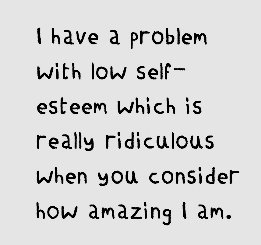
Self-esteem is less a factor in a world where the core life skill is survival, as one’s self view is less relevant. Survival has been our focus hundreds of thousands of years but this is shifting fast. This shift began centuries ago, though it has accelerated over the last century or so. We have been liberated from a survival focus in a significant way by our expanding knowledge as manifested, for example, by new technologies and in medical advances. Many of the ailments that used to be life threatening are no longer as dangerous, indeed many of these have been essentially conquered (such as tuberculosis, small pox, heart problems, infections and so on). We no longer burn wood to keep our homes warm; we have cars rather than horses, and electricity to make what was once hard work routine. Yet, our focus has not diminished, so if we reduce it in one area, it will go elsewhere. One of these new areas of focus is on protecting our self image. We have a strong tendency to protect it, to ensure that it survives because in many ways it has in part supplanted survival of the body as a fundamental element of our minds programming.
The fact that life is no longer focused as much on survival has brought us to the stage where we are beginning to learn to use more of our inherent mental and spiritual capabilities. Our minds are now freer and more able to delve into thoughts about us and the world we exist in. However, by overcoming the lessons of how to survive, to a large degree at least, we are not left with less to deal with; we simply have new lessons to learn, arguably more lessons than before. This has led to our having to deal with matters that did not concern us so much in the past.
Despite the shift, we are not dealing with different lessons from our parents and those that came before them; we are exploring them in ways their lives did not permit ((2) (3)). The vehicles we use for learning them, namely vastly different types of experiences, have changed but we are still working on the same lessons though one could say we are doing so at a ‘higher level’.
Where does our self image come from? Our image of ourselves develops as a consequence of our experiences and what we took away from them. It is a complex web of many other webs of thoughts that we have acquired through our lifetime of experiences. Take the example where one is doing a task. We do not just do it and move on; we make a determination of whether we were successful at it, how well we did, whether we are happy about it or not and so forth. Further, these reactions will be added to our history and shape future actions.
Where do the criteria for our determinations or judgments on such things come from? I believe we bring some of these with us, a bit of our individuality, but much of it is the result of what we have learned through experiences, such as certain results were considered great, acceptable or unacceptable by others who opinions we valued or gave extra weight to. The measure of our success is not based on some absolute value; a significant portion of it comes from what others have suggested as measures of success. Further, that measure of success or failure is something we then use to determine our value.
We determine our personal value the same way we decide on the value of anything be it an object, a person, a belief or even ourselves. This was the focus of essay The Nature of Judgment (4), which is from the core Twin Powers material.
“When we look at a painting, say of a nature scene, we distinguish the elements of the scene because they are familiar in some fashion to something we have seen or experienced before. When we perceive this painting, we make a determination as to its importance, its value and of course its interest to us. If we like the painting we judge it to be a “good painting”, if we do not we may be inclined to criticize. We forget it is just a painting, and while we can debate its merit or value to us as individuals, we do not help ourselves by criticism or negative judgment. We need to be able to contrast, to notice the differences, we do not have to or need to criticize it, we simply do.”
We can see that our values about whether we are successful at something, and the degree of that success is learned. If we were taught that nothing short of perfection is acceptable, we are far more likely to judge ourselves as failures when we fall short of this mark. Similarly, our personality traits are subject to the same type of judgments, each of which affects how we view ourselves and therefore how we integrate experiences. Our self-esteem, like other aspects of our personality, is the result of the cumulative effect of our reactions.
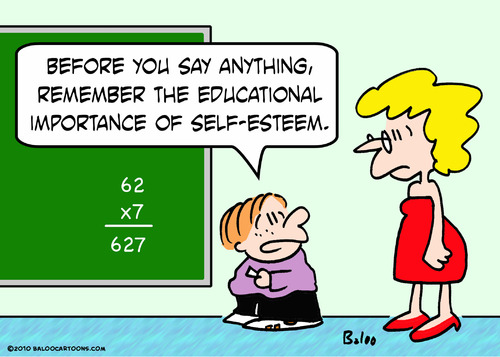
We also create our own weighting criteria for such things. We also care about perceived outcomes and typically buy into what our friends and family think more than what a stranger or someone we do not ‘like’ thinks because we place more value on their ideas and thoughts. This is what is commonly known as peer pressure, but in reality it isn’t just peer’s that influence us, it is anyone who’s opinion, thoughts and ideas matter to us. The influence of those at school can become far more significant to us than our parents because we spend more time with them and so we can come to believe they affect us more. We also assume love from family and friends, so we can find ourselves caring more about what we believe others think of us. What matters to us certainly varies from person to person, but the reality is most people want to be ‘liked’ by others whose opinion they make important or who they believe can affect their lives.
The significance of our self view, which is closely related with one’s level of self-esteem has a significantly affect on every aspect of us. A number of these affects are subtle and so we do not relate them to experiences. How does our success or failure at something affect our subsequent actions? That depends on one’s sense of self worth or esteem. If we have a high level of self-esteem a perception of failure can lead to us try harder, if we have a low level we can get down on ourselves making success even harder or even lead to giving up.
Our self-esteem affects every choice we make including what we choose to do and how much of ourselves we vest in it. How can we tell if this is a challenge for us? Consider the following points:
- I generally go along with what others would like to do even if I disagree.
- I rarely speak out when I disagree with others.
- I try a lot of things but do not focus on any one of them.
- I care what others think of me.
- I do not like to be wrong.
- I have a hard time making up my mind.
- I wonder what others will think of my choice(s).
- I wonder what others think of me because of what I did/said.
- I often look around to see what others are doing.
- I rarely question what I believe to be the case.
- I do not research ideas from multiple angles.
- I think others are often just lucky.
- I expect praise when I do well at something.
- Other’s opinions of me matter.
- When someone disagrees with me I hold my ground and reaffirm my ideas.
- I tend to want the hottest new items.
- I enjoy modern reality type television shows.
- I pay attention to what is going on with the “stars” are doing (TV, music, actors, etc)
- I purchase items based on the labels alone.
We integrate our experiences based on what we learned from past reactions and innate qualities we bring in with us to a given lifetime. I realize that some of the above may seem innocuous enough and having one or two is certainly not an issue; that said, they are indicators that we may be putting too much weight or value in what we think others are thinking or what they are saying or doing, now or in the past. This leads to choices based on mistaken notions, and often choices that are not as beneficial for us as the alternatives. We should be working to shift our focus and attention off of others and onto doing what is right for ourselves.
When I refer to "right" I am not referring to some "absolute right" (8). to I am referring to doing what is in our best interests and for our highest good all while respecting others and doing them no harm. If we are seeking growth, be it personal and/or spiritual, then care for ourselves must include care for others though not to the point where were surrendering ourselves to them. This is not a one or the other proposition for as Buddha is purported to have said "If your compassion does not include yourself, it is incomplete."
Our self image affects what we think and choose to do, the clothes we wear, how we act alone or with others, how we view ourselves and so on. Obviously it has an enormous affect on our lives. Fortunately, there are ways to work on our self-esteem, many of which involve developing a sense of mental self dependence and acceptance rather than dependence on or acceptance from others. We want to increase our faith in ourselves by reducing our programmed need to look to others. We want to find some sense of self reliance and faith in ourselves.
I can listen to others, even follow what they suggest and still have a high level of self-esteem. For instance, I can think that someone is very smart without devaluing myself in the process with thoughts comparing myself to them. When we think someone is smarter than we are there is a strong tendency to devalue ourselves with thoughts that we are someone less than they are as if "smartness" is some measure of our worth or value. The same thing applies to other ways we may compare ourselves to others such as they are taller, better looking, faster, richer, better at sports and so on. We create issues for ourselves when we notice differences and then judge ourselves based on these perceptions.
“Where does our tendency to judge and criticize come from? It is a negative thought based on learned responses. While we may be born with a potential perhaps even predisposition of being judgmental, we are not born with negative attitudes. We learn to be negative. A great many parents use criticism to teach their children. Parents need to guide, to encourage, and naturally to set an example. When parents criticize their own children and others their children learn to do the same. They build thought forms that incorporate this attitude perpetuating the cycle. It is literally an epidemic in our society.” (4)
There are a number of things we can do to work on our self-esteem. One is paying more attention to our thoughts and subsequent feelings; however, if it were that simple we would have done so long ago. One has to look ‘deeper’ to find how our self image affects our choices because its manifestations can be very subtle indeed. Finding them is problematic; fortunately there are techniques that can help.
I believe in self questioning then feeling our emotional reaction and paying attention to the thoughts we have when we try to answer our questions. I shared a technique for our becoming more aware of and in greater conscious control over what is referred to as “The Rational Mind Editor (RME)” and was covered in the essay "Intuitive Indulgences" (7).
“Initially our rational mind hears the question and, as it does with any input such as a thought an emotion or an experience, it begins to process what it hears, even before we are conscious of it. In the time between when we hear it and we think about what we heard our rational mind has already processed the information and if it is a question, it has the answer. It then compares the answer with its programmed responses. If it is something we are unwilling to look at it goes to the second most honest answer and so on until it comes to one that passes all the filters and blocks. Only then are we consciously aware of it. We then consciously edit this response a few more times for any number of reasons.
It might surprise you to know that most of the time the answer people are conscious of is at least the tenth most honest on the list or lower. The most people might notice of the edit process being some form of hesitation. We would have hundreds of thoughts during even a brief hesitation. Most of these thoughts happen too quickly to be perceptible. What we notice are those deemed acceptable by the programming of our rational mind. The act of examining our honesty gives a clear signal to our rational mind that we are losing our fear of the truth. This is the first step in changing the programming established by how we have reacted to our experiences.”
This is an invaluable tool in debugging our minds by way of helping us identify issues (using the analogy of our minds is essentially an almost inconceivably complex software program). Self image challenges can be hard to notice. Let us take one of my examples from above, “I have a hard time making up my mind.” When we have a hard time making a choice it is because our mind cannot determine the best option. This occurs when we have ambiguity or conflicting ideas and/or lack an objective measure to decide by.
For instance, we may want to buy a product that is economical, yet we want the prestige of a more expensive name brand, one that is currently “all the rage.” We will be undecided when we have no weigh scale to determine which of these two factors are more important. If the item is cheap enough and buying it won’t affect us much, we will likely opt for the name brand. We run into a challenge when the price gets higher and the decision gets harder as it will affect more of our life. Even opting for a higher priced product because it is say environmentally friendlier can be a sign of self-esteem challenges.
We should simply do the right thing, by this I mean we should live in balance with nature and ourselves as much as possible because it feels right, not because it makes us feel better about ourselves, though I must add a caveat. When one is first starting down the growth path, consciously choosing a ‘better’ alternative than we might otherwise because it makes us feel good about ourselves can help get us more firmly on the path.
Our self-esteem is factored in as one of those ‘tests’ our REM goes through when it determines what we will be consciously aware of. That is why painful memories are typically distorted. If, for any reason, we are reluctant to look at a particular event the mind adds a layer, and more if necessary to get our thoughts about it to where they are palatable to us. How the event made us feel about ourselves is one or more of those layers, though it is important to note that our rational mind can take on so many layers that we block the memory altogether.
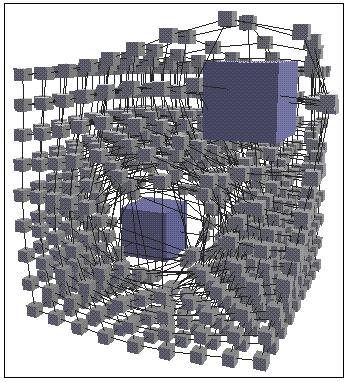
What we can benefit from is reducing the layers of editing the RME goes through as each layer is a reduction in our level of honesty. Interestingly enough, it is precisely the lack of an RME, in certain situations, that allows clairvoyant people to get clear and precise information. They do not try to edit, question or analyze what they get, it comes through straight and clear.
Another way to work on our self image or esteem is to recognize that we have been making choices to try to get particular outcomes. Therefore, continuing the example above, when making choices where self image is involved, consider the outcomes of both choices. You may find that your criteria came from the ideas you developed due to peer pressure during your childhood, and those reasons are not valid anymore. It can be incredibly liberating and empowering to have the epiphany that such things do not matter anymore, and likely never really did.
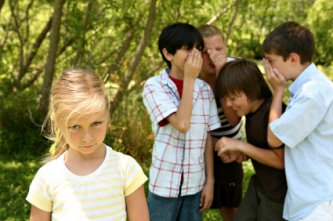
We can also make headway in this area by simply putting more faith in ourselves. Accept that you matter just as much as anyone else and your own ideas count just as much as anyone else’s. Now, this is assuming your intent is honest and caring and your thoughts clear, objective and where required factual.
The fact is others do not live our lives, we do; they have their own. Do not give your power away to them. Simply tell yourself that those who judge you have invalidated their opinions because judgment is not objective. Certainly listen to valid comments, but ignore the accompanying judgments of us. As a consequence, we should consider doing things because they feel right not because others, at times including ourselves, might approve or not.
Now, one must pay attention to what feels right, for I am not referring to an emotional feeling, as these are the results of thoughts, I am referring to that knowing we can have, and such knowing does not come from thoughts. The way to this knowing is reducing the layers in our RME.
Getting to know ourselves is a key element in reducing the layers in our RME. One of the exercises sets in The Twin Powers material is devoted to helping us do this. The set is called “Taking a Look at Yourself” (5) and includes 4 exercises, each with the express purpose of getting to know some aspect of ourselves better. That page contains a link to the first exercise, “Describing Oneself from Two Views” (available to all site visitors) and the following is a quote from it:
“We are looking for an honest representation of what we think and feel. You will not be able to be 100% honest so do not worry about it. The exercise is simply to take a snapshot of our view of ourselves, as we think we are. The purpose goes beyond the words you write down on paper. We want to engage ourselves, to get to know ourselves not as we think we are, rather as we truly are. We want to start noticing when we have mentally editing an answer, as this is an indication of an underlying issue that our rational mind is avoiding or would prefer we ignore. We want to note this as it will be of benefit later on when we start to hone in on specific issues.”
We build the layers I referred to, in part as a protection mechanism. If something caused us discomfort or emotional pain our mind remembers even if we do not. We may not consciously remember this, but it does factors into future choices. Getting to know ourselves is one way of reducing the layers.
As this essay comes to a close, I want to mention that self image and esteem issues have a strong correlation to those related to personal energy. I covered this in part in the conclusion of the “Our Mental House” series, titled “Our Relations with Others” (6):
“Our auras do have a general state, and it is different for every one of us. Our auras develop as we grow up; therefore, they reflect our personality. People who are shy tend to keep their energy close in and the energy on the surface, if you can call it that, is well defined, though often has little offshoots used to sense whether others are a threat or not. Not that this implies what they interpret is accurate, just that they tend to probe people to try to determine if they are safe. Their thoughts play a significant role in this, thoughts of being reserved keep their energy in. The probes I mention, come from thoughts such as “I don’t know whether you like me or not” or “You make me feel nervous” which can cause tiny offshoots of energy to reach out to verify if it is true (again, it doesn't mean that what they "get" is necessarily accurate).”
The reason is that self image issues trigger emotional reactions that in turn affect our current energy state. Thoughts related to low self-esteem evoke lower emotional energies, depending on their type it can result in us becoming more closed and isolated, directing these same energies at people or pulling on the energy of others, even a combination thereof. It is different for each of us. Each of these leads to long term challenges as they further isolate us from ourselves. For instance, there is a strong correlation with the “poor me” pity syndrome and people who tend to pull on the energy of others. We can feel drained when we are around people who have this as one of their strong thought forms.
I would be remiss if I did not also touch on one of the dominant factors in our view of self - the past. Not only have our experiences programmed our rational mind, looking back and judging our choices negatively lowers our view of us, as judging ourselves or others always manifests lower thought forms. We should avoid this as best as we can, and can do so by accepting that if we had known better at the time we would have done differently. We can lament our lack of awareness or knowledge at the time if we must, but negatively judging ourselves for what we did not know is foolish and counterproductive. I put it this way – if we should have and could have we would have. In addition, there is no way to go back and change the past. This leads to an important concept simply called updating.
Updating is the act of modifying our image of self to reflect where we are now, not where we were at some point in the past. We change with time, we learn and we grow. Just as an ingot of steel is transformed when it is made into a hammer, we are NOT the same person we were. Clinging to old notions of self puts the breaks to growth. Finding balance in our lives requires that we acknowledge our growth and development and not wallow in the past, not continue to judge ourselves. We cannot make others update their image of us though. They may want to remind us of things that occurred, but if we have corrected any ‘mistakes’ we made, and done all we can to make something right, there is nothing else we can do. This goes back to the idea of their judging us, which they have the right to do; however, we should work on being able to let it go.
Earlier I mentioned about people who do not take failure of some action as a blow to their self-esteem. The reason they do not is that they do not make the outcome a reflection of themselves, only the idea the choice sprang from. Innovative people, true leaders, creative and other such types of people tend to judge themselves less in this regard. This frees them to try things without judgment. They may re-evaluate their preparation, their thinking processes and so on to see why they were not successful, but this is not the same as judging themselves a failure. That is why the quote “nothing ventured, nothing gained” remains relevant.
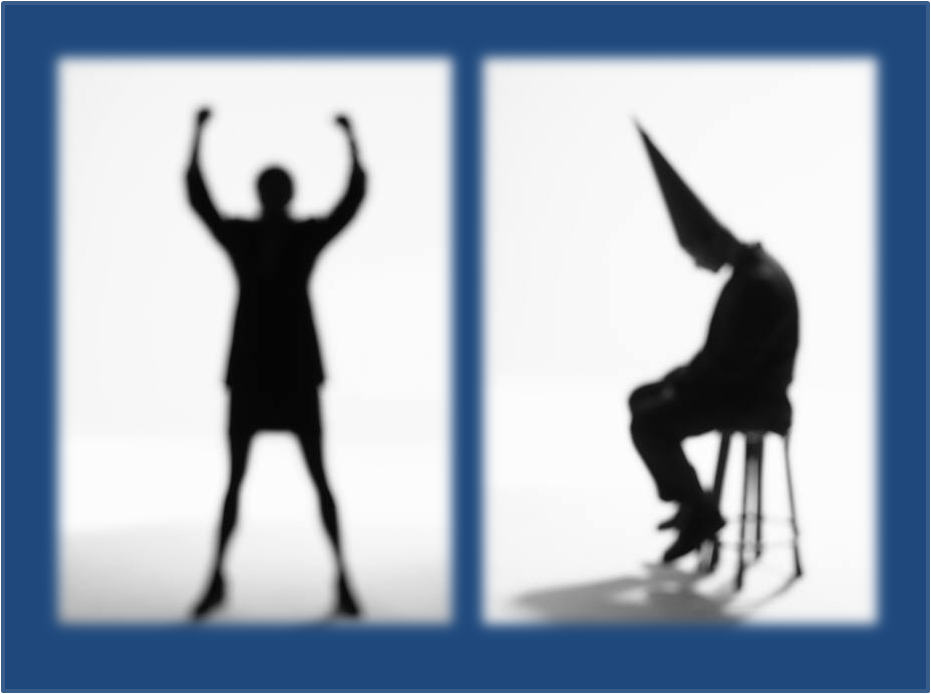
In all of this the key element is to truly value ourselves, not by devaluing others, rather by simply accepting that each one of us is unique, each one of us will make different choices in the same circumstances and there is nothing inherently wrong with this. If there are areas we need to work on and perhaps are not, we should also accept that maybe now is not the right time for doing so. We do not need to beat up on ourselves for it. If we can reduce the number of times we do something in response to what others are doing or have done then we have taken a big step. When we cannot do this we can at least try to get a handle on why. I am a firm believer in trying to act rather than react.
Never forget that everyone one of us is here for a reason. We may not know what it is, how or why we came to be born as who we are or even be aware of how it manifests in our life. We are here to learn, and grow, each of us in our own unique way. I like to think of it us as part of the body of Cosmos or God (as I ‘see’ it); however, whether you believe this or not is neither here nor there. The fact remains that each of us are unique, are therefore singular important in this regard.
Remember, you matter as much as anyone, so do not give yourself away or let anyone take you from yourself.
Modern Man
Who do you kid? - not me.
I ain't still enough,
Go clench your fist in rage.
Taking some kind of sid? - not me.
I'm too still for it,
When will you come of age.
Chorus
Dwell where you will
But, you will only be still - when you're ready
Be things as they might
You won't need to fight - when you're ready
Now that you're here,
What course will you steer
Modern man ... modern man.
Your thrown away frustrations,
Are just broken dreams on the floor.
Not one of you Aryans even know,
You're knocking at the wrong door.
You have your wants, and desires
And you've got your schemes
But, you're just building a fire,
And you're lost in your dreams
Oh, and I bet if it could have been
You'd wish it would have been
And I bet you
That it shouldn't have been at all ...
You're reacting to your own reactions
And you call it getting along
'cause if things are so together
Then they sure aren't letting on...
© 2012 Allan Beveridge
Last updated July 7, 2021
References (*- denotes essays only available to site members of TheTwinPowers.com):
- Our Mental House Part 1: The Dynamics of Thought
- Our Evolution
- Our Modern Times
- *The Nature of Judgment – Criticism versus Contrast
- Exercise 3: Taking a Look at Yourself
- Our Mental House Part 6: Our Relations With Others
- Intuitive Indulgences
- Is That Right?
Last updated September 28, 2020
